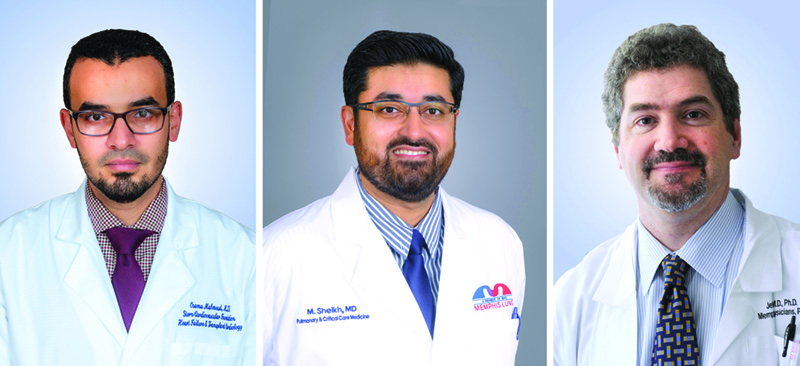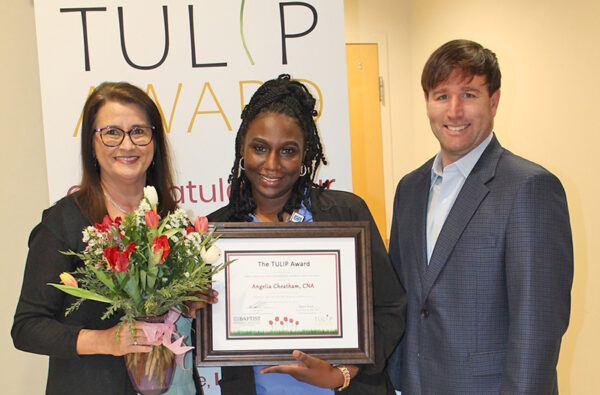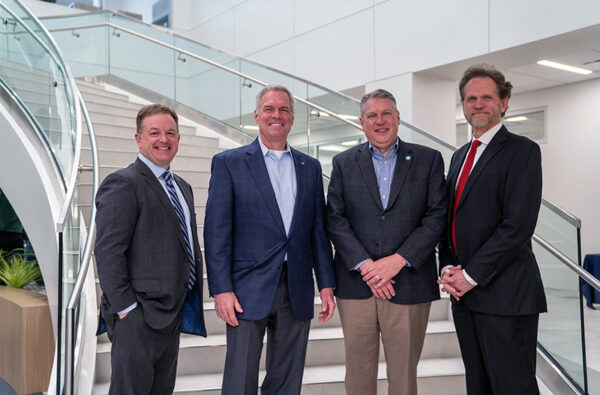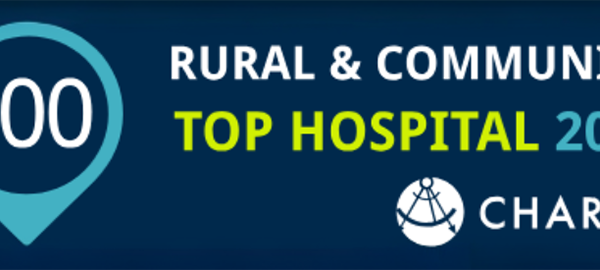Patients with pulmonary hypertension require complex care from a multidisciplinary team. The Baptist Comprehensive Pulmonary Hypertension Center, which opened in January on Baptist Memorial Hospital-Memphis’ campus, will provide the specialized care that previously wasn’t available in this area. The center is a collaborative effort between Stern Cardiovascular Foundation, Memphis Lung Physicians Foundation and Baptist Memphis.
The Pulmonary Hypertension Center team includes Advanced Heart Failure and Transplant Cardiologist Dr. Osama Mahmoud, Pulmonologist and Critical Care Specialist Dr. Muhammad Sheikh, Pulmonologist and Critical Care Specialist Dr. Jeff Wright, Pharmacist Amy Brewster, and Pulmonary Hypertension Coordinators Melanie Foley, RN, and Nicole Murphree, RT.
The center is open for referred patients twice a month on Wednesday afternoons.
“We have identified this need locally as there are no pulmonary hypertension centers in a 100-mile radius around us. The closest one is in Nashville,” said Dr. Sheikh.
Pulmonary hypertension is a rare, but very serious progressive condition that occurs when the pressure in blood vessels leading from the heart to the lungs is too high. It affects women more often than men.
“Pulmonary hypertension puts a strain on the right side of the heart, which is the side pumping blood to the lungs,” said Dr. Mahmoud. “If long-standing, this strain can lead to right-sided heart failure manifesting as lower extremity edema, shortness of breath, fatigue and syncope (fainting). In extreme cases, the strain from pulmonary hypertension can lead to failure of the liver and kidneys.”
For patients with pulmonary hypertension, diagnosis and treatment are extremely important to avoid poor quality of life, lost productivity and early death. Unfortunately, the condition is often misdiagnosed.
Dr. Mahmoud referred to pulmonary hypertension as “a great mimicker that presents with a host of non-specific complaints.” He said it tends to go unnoticed for years.
When a patient is seeing a provider who doesn’t specialize in pulmonary hypertension, diagnosis may be more challenging. The Pulmonary Hypertension Center is on hand to help with diagnosis of referred patients, and treatment is available for patients after diagnosis.
“Most of the time, pulmonary hypertension can be treated with medications with great results. Unfortunately, patients tend to be diagnosed late in their illness and, even after diagnosis, do not get appropriate treatment,” noted Dr. Sheikh.
Pulmonary hypertension has many subtypes, with one form having a life expectancy of as little as two years with no treatment.
“With appropriate treatment, life expectancy and quality of life can improve significantly, even for patients diagnosed late in their illness,” said Dr. Mahmoud.
After referral to the Pulmonary Hypertension Center, patients are evaluated jointly by Dr. Mahmoud for cardiology and Dr. Sheikh or Dr. Wright for pulmonology. The center also offers all necessary diagnostic testing, including cardiac catheterization.
“Patients love seeing the interaction between the doctors while they discuss their care. It helps them to understand what’s going on, and they’re really excited about only having to go to one location to see the entire care team, including the respiratory therapist and pharmacist,” said Melanie.
Since patients can see both the pulmonologist and the cardiologist at the same time, they may receive a quicker diagnosis and hospital admission, if necessary, possibly with a shorter stay. Having the pharmacist on site also means that medications may be approved and started more quickly.
To contact the Pulmonary Hypertension Center, call 901-226-2528.






